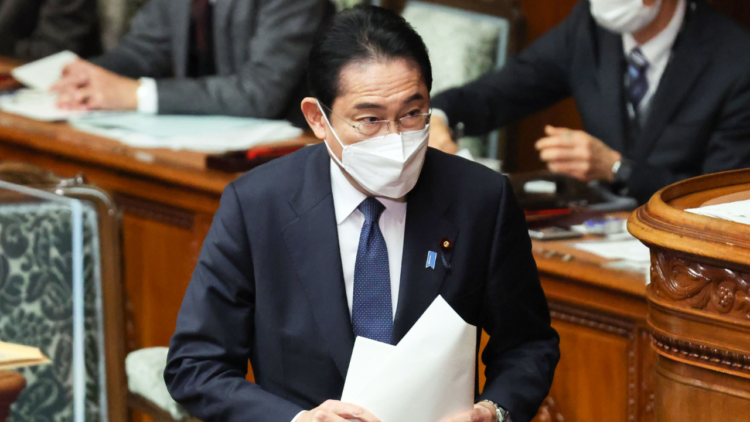Japan formally decided Thursday to downgrade the legal status of the novel coronavirus to a level on par with seasonal influenza on May 8, paving the way for full normalization of social and economic activities.
The finalization of the schedule comes as the government mulls bringing forward the lifting of its remaining coronavirus border control measures by more than a week to midnight Friday, in anticipation of an increase in people traveling overseas and returning during the Golden Week holidays starting Saturday.
Under the current requirement, all entrants to the country must present certification of having received at least three COVID-19 vaccination doses or a negative result from a coronavirus test, taken within 72 hours of departure.
Infectious disease experts at a health ministry panel gave the greenlight to the planned reclassification schedule based on the current coronavirus pandemic situation and the preparedness of the health care system for resurgence across the country.
The panel reported that around 8,400 medical institutions, comprising 90 percent of hospitals nationwide and clinics, are ready to take in up to 58,000 COVID-19 patients. Around 44,000 institutions will accept outpatients, up from 42,000 at present.
“Special measures that the government has been taking in response to the novel coronavirus will end on May 7,” Minister of Health, Labor and Welfare Katsunobu Kato told a press conference.
In Japan, COVID-19 is currently designated as a special category equivalent to or stricter than Class 2, which covers infectious diseases such as tuberculosis and severe acute respiratory syndrome, or SARS, under the law.
The government has said it will reclassify COVID-19 to Class 5 diseases like seasonal influenza from May 8, meaning a state of emergency will no longer be issued when a resurgence of infection occurs.
The government’s covering of coronavirus-related medical charges for outpatient care and hospitalization will also end, except for expensive treatments.
But some infectious disease experts are cautious about a rapid return to pre-pandemic norms, stressing the need for the elderly and others vulnerable to the coronavirus to continue wearing face masks in order to protect themselves.
“There is still a high risk if people start going out the way they did before the coronavirus pandemic,” said Tetsuya Matsumoto, a professor of infectious diseases at the International University of Health and Welfare.
Earlier this month, a group of experts on the health ministry’s advisory panel also warned that Japan could face a “ninth wave” of the coronavirus pandemic even more severe than the previous one, while the health minister noted a rise in cases of the new, contagious XBB.1.5 sub variant of the virus.
During the last surge in infections, or the eighth wave, seen from late November to late January, over 7.5 million COVID-19 cases were reported, according to the health ministry.











